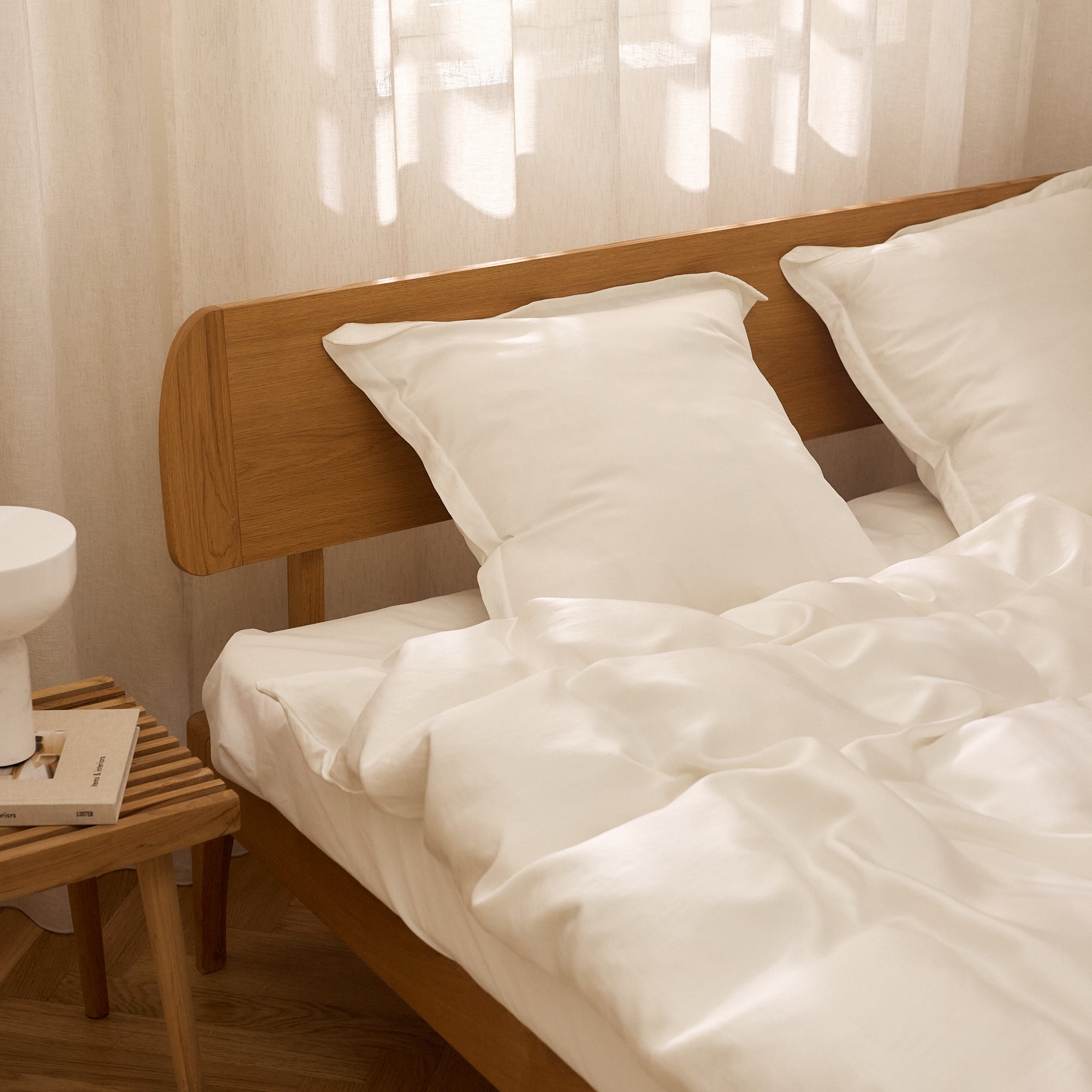Some people sleep well every night, others experience problems every now and then, and some are so unlucky as to dream of a better night's sleep full-time. But what affects the quality of your sleep? And what can you do yourself to ensure a better night's sleep? In this post, we will teach you how to get a better night's sleep.
What is a good night's sleep?
What each person considers a good night's sleep is individual. Some people are used to sleeping fewer hours, and thus feel rested after a shorter night's sleep, while others need a few more hours before they are rested. Sleep researchers believe that the optimal amount of sleep is 7-9 hours for adults, but it is generally up to you to find the right amount within that range.
Another factor that affects your perception of a good night's sleep is the sleep stage. There are four stages of sleep, but it is important that you enter the third stage, which is deep sleep – this is the stage that contributes to you feeling fresh and well-rested the next morning.
If you don't get into deep sleep, you may wake up many times, which can lead to a restless night's sleep. And although you may not realize it, it will significantly affect your energy levels.
How many hours of sleep does an adult need at night?
Small babies sleep all the time – up to 16 hours a day in fact. Throughout life, the need gradually decreases, and as teenagers we need around 8-10 hours every night. As mentioned, sleep researchers believe that as adults we need somewhere between 7 and 9 hours of sleep, but most adults only sleep around 6-7 hours on average.
The recommended hours of sleep change quite a bit from when you are a newborn to when you are an adult. There is also research that says that women need about ½ hour more sleep per night compared to men.
How do I get a better night's sleep?
We have already mentioned that your night's sleep is individual. Some people sleep well when they fall asleep to meditation music or read a chapter in a book beforehand. Some sleep best when it is cool - others sleep best when it is warm. And that's how individual it is.
However, we have nevertheless compiled a selection of good advice that you can try if you are experiencing sleep problems:
- Go to bed when you are sleepy.
It doesn't work to force yourself to sleep if you're not tired. No matter how much you think those 8 hours are important, going to bed when you're not tired can have a negative effect. Instead, you should go to bed when you feel sleepy.
- Avoid activities that don't make you relax.
Don't tackle that big work task or do that 10km run right before bed. Instead, choose an activity that will help you relax!
- Put away the phone and the TV – read a book
The blue light from phones and TVs can make us feel more refreshed, so it's a good idea to put away your digital devices for a while before bed. Instead, read a good book, which will definitely make you feel nice and tired.
- Create a stable sleep routine
Don't force yourself to go to bed and sleep when you're not tired. On the other hand, creating a routine where you get up at the same time every day can improve your sleep. If you snooze every day or set your alarm for different times, it can be difficult for your body to feel rested.
- Avoid drinking caffeinated beverages before bed
Most people swear by coffee in the morning, which provides a good energy boost for the day. However, it is important to avoid caffeinated beverages so that you don't get an energy boost before bed.
- Take a nice hot bath before bed.
A hot bath before bed can make you drowsy and tired, so you can collapse straight into your cozy bedding and fall asleep.
- The worst thing that can happen is that you're tired.
Don't stress about your sleep! Even if you went to bed an hour later than you planned, stressing about it will only negatively affect you. Instead, think "the worst that can happen is that I'm tired."
- Create the right environment in the bedroom
It is important to have a bedroom that invites you to sleep. Create a calm and comfortable environment with the right curtains, the right bedding and the right colors on the wall.
How much impact does the food we eat have on our sleep at night?
There aren't many foods that affect our sleep quality. We've already touched on this a bit, but sleep researchers would say that you should avoid alcohol, caffeinated coffee, dietary supplements, and strong spices.
Additionally, many people believe that drinking chamomile tea, eating dark chocolate, or eating fish can have a positive effect on your sleep. Each of these foods contains ingredients that can have a calming effect on you.
How do I get a good night's sleep in the heat?
Most people experience the problem – when summer is over in Denmark, it suddenly becomes a struggle to fall asleep in the heat. Here, the alpha and omega is that you remember to air well with drafts all day, and if you need to, you can sleep with the window open all night. In addition, you can choose silk bedding, which has a cooling effect that can alleviate your problem with the heat. In the worst case, many people benefit from a fan that can blow cool air into the room.









































